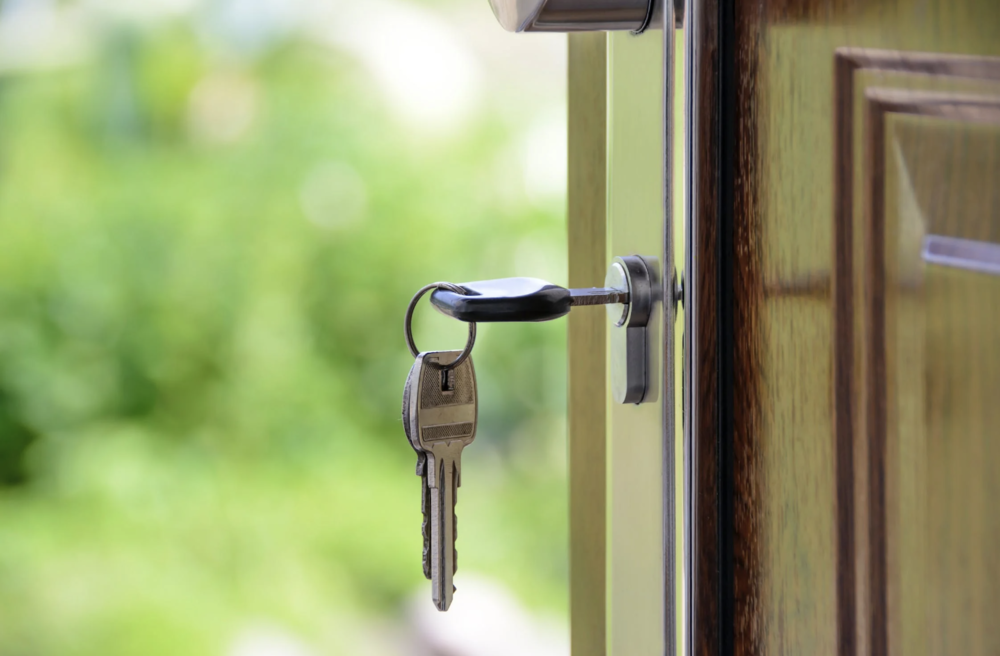
Caption
About 40% of respondents to a survey of adults with disability said they moved multiple times in the past five years. The most common reason: Their home became physically inaccessible to them.
Credit: Pexels

About 40% of respondents to a survey of adults with disability said they moved multiple times in the past five years. The most common reason: Their home became physically inaccessible to them.
Georgia lacks appropriate housing options for people with intellectual and developmental disabilities, according to a new study.
“The current housing landscape is not working well for people with IDD and their caregivers,” said the report by Georgians for a Healthy Future, which is a nonprofit patient advocacy group.
“Many caregivers and people with IDD find themselves in situations that do not meet their needs or preferences because affordable and accessible housing and living situations are largely unavailable,” the report continued.
There are thought to be about 240,000 Georgians with an intellectual or developmental disability, such as autism spectrum disorder, down syndrome or cerebral palsy — though an accurate population count likely remains elusive.
The report, “Realizing the Promise of Olmstead,” was funded by the Georgia Council on Developmental Disabilities and included an online survey of nearly 1,700 people with disabilities and caregivers across the state.
Olmstead refers to a 1999 U.S. Supreme Court decision, which ruled that the unjustified segregation of people with disabilities violates the Americans with Disabilities Act.
“There is a legal requirement that people with IDD and other mental disabilities be housed in as close to their community setting as they can be,” Whitney Griggs, senior policy manager with Georgians for a Healthy Future, said during a virtual program Thursday.
“We also know that a lack of access to affordable, accessible and sustainable community housing is associated with an increased risk of institutionalization, homelessness and poor health and social outcomes among people with IDD,” Griggs said.
About two-thirds of the survey respondents with a disability said they live in a community-based setting, such as an apartment or single-family home. About 17% said they lived in a group or host home. Others reported living in a medical setting, a nursing home or a school dorm.
A little more than half of the respondents with a disability said they lived with family members, and 44% said they lived either on their own or with roommates. Nearly half said they rented their homes.
About 4% of respondents with a disability — or 51 people — said they were currently experiencing homelessness, which is twice the rate of Georgia’s overall population.
About 40% of respondents said they moved multiple times in the past five years. The most common reason: Their home became physically inaccessible to them. The cost of rent and transportation were also factors.
Among caregivers, about 84% said they were concerned they would no longer be able to care for their family member, prompting worries other arrangements would be needed.
Caregivers reported a lack of housing as the top barrier for transitioning a loved one into a different living situation.
“Of all the issues I think housing is the one for our community that nags me the most because we really don’t have a whole lot of models or support for people with developmental disabilities living in their own homes,” said D’Arcy Robb, executive director of the Georgia Council on Developmental Disabilities.
“There tends to be a big reliance on folks with developmental disabilities remaining in family homes or going to group homes.”
The report offered a slate of policy recommendations that range in ambition. In the short term, the report suggests forming a standing workgroup focused on the housing issue and increasing wages for workers who assist people with disabilities.
Looking longer term, the report pushes for requiring state-funded housing that complies with universal design standards, such as grab-bars in the bathroom and ramps at the entrance.
This story comes to Georgia Public Broadcasting through a partnership with Georgia Recorder.